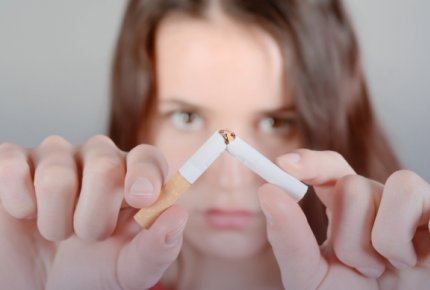Each year, World No Tobacco Day shines a global spotlight on the devastating effects that tobacco use and second-hand smoke exposure have on public health worldwide. Organized by the World Health Organization, the annual campaign serves as a call-to-action for policymakers, world leaders and public health advocates: we must act now. To protect children from a lifelong tobacco addiction and increased risk of tobacco-related cancers, to improve the health of our communities, to stand up to Big Tobacco – we must act today.
As the leading cancer advocacy organization, the American Cancer Society Cancer Action Network (ACS CAN) places highest priority on reducing the significant health and fiscal toll tobacco takes on our communities. The fact remains that tobacco use is the most preventable cause of death in our country, and nearly one-third of all cancer deaths are still caused by smoking, including about 80% of all lung cancer deaths. It’s no exaggeration to say that our mission to eliminate cancer as a public heath burden depends on addressing the deadly epidemic of tobacco use. Of particular urgency is a need to combat the skyrocketing rates of youth use of tobacco products that are substantially driven by access to flavored e-cigarettes, or we risk addicting a new generation to tobacco.
addicting a new generation to tobacco.
We work with partners and policymakers across the country to develop and execute an evidence-based policy agenda proven to reduce exposure to secondhand smoke, prevent people – especially youth – from initiating tobacco, and encourage those who currently use tobacco to quit. Passing and implementing tobacco control strategies, including regular and significant tobacco tax increases, comprehensive smoke-free laws and sustained funding for tobacco prevention and cessation programs, is essential to reduce tobacco-related diseases and deaths. ACS CAN also continues to advocate for the Food and Drug Administration (FDA) to exercise its full authority over the manufacture, sale and marketing of tobacco products to ensure tobacco products are regulated appropriately. Just this month, in a lawsuit filed by ACS CAN, several of our public health partners and individual pediatricians, a federal judge ruled that the FDA acted illegally in allowing e-cigarettes to stay on the market for years without a review of their public health impact.
In response to the alarming rates of youth use of e-cigarettes in recent years, legislation to limit youth access to addictive tobacco products by raising the legal age of sale for tobacco products from 18 to 21 years has become increasingly common at all levels of government. Legislation to raise the minimum age of sale can be a critical component to a strong, comprehensive tobacco control strategy to reduce youth initiation of tobacco use. However, the tobacco industry has worked to influence many ‘Tobacco 21’ (T21) proposals, undercutting their potential to reduce youth use.
To date, at least 470 municipalities and 14 states have passed T21 laws, including Maryland and Vermont where the bills were signed into law earlier this month. Several federal lawmakers – including Senate Majority Leader Mitch McConnell (R-KY) and Sen. Tim Kaine (D-VA) and Senators Schatz (D-HI), Young (R-IN), Durbin (D-IL) and Representatives DeGette (D-CO) and Stewart (R-UT) have introduced bipartisan proposals this year to raise the federal age of sale to 21. It’s imperative that any legislation intended to raise the minimum age of sale doesn’t include carveouts for age groups or particular tobacco products, do favors for the tobacco industry or preempt any state or local government from enacting its own strong tobacco control laws. These laws should further be combined with interventions to educate retailers and actively enforce the laws.
ACS CAN will continue to press for public policy solutions to reduce the toll of this deadly product. Everyone – lawmakers, public leaders, parents – should heed the World No Tobacco Day call-to-action, and seize the opportunity to join us in this fight.

 addicting a new generation to tobacco.
addicting a new generation to tobacco.